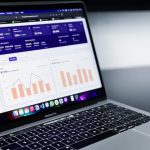In today’s data-driven world, businesses across industries rely on accurate and actionable insights to make informed decisions. Reporting and data analysis play a pivotal role in transforming raw data into meaningful information, enabling organizations to understand trends, identify opportunities, and address challenges. We will explores the importance of reporting and data analysis, highlighting their role in driving success and fostering a competitive edge.
Reporting involves the collection, organization, and presentation of data in a structured format to facilitate analysis and decision-making. It provides stakeholders with a comprehensive view of key metrics, performance indicators, and trends within an organization. Reporting can take various forms, including financial reports, operational dashboards, and performance scorecards.

Data analysis, on the other hand, focuses on examining datasets to uncover patterns, relationships, and insights. By utilizing various statistical techniques and tools, data analysis enables businesses to extract actionable information from vast amounts of data. This process involves cleaning and transforming data, applying analytical models, and visualizing results.
Reporting and data analysis are essential for driving informed decision-making within organizations. By leveraging these practices, businesses can gain a deeper understanding of their operations, customers, and market dynamics. This understanding empowers executives and managers to make data-driven decisions, rather than relying on intuition or guesswork.
Through reporting, businesses can track key performance indicators (KPIs) and assess progress towards strategic goals. These reports help identify areas of improvement, enabling organizations to optimize processes, allocate resources effectively, and enhance overall performance.

Data analysis goes beyond traditional reporting by providing deeper insights and predictive capabilities. By employing advanced analytics techniques, such as regression analysis, machine learning, or predictive modeling, businesses can forecast future trends, anticipate customer behavior, and proactively address potential risks.
In today’s competitive landscape, organizations that harness the power of reporting and data analysis gain a significant edge over their counterparts. By leveraging data-driven insights, businesses can identify market trends, consumer preferences, and emerging opportunities.
Integrating information on reporting and data analysis through RTO training materials, this will equip learners with the skills and knowledge needed to thrive in a data-driven world. Understanding the importance of data, mastering reporting techniques, and developing data analysis skills are essential for making informed decisions and driving organizational success.
RTOs can guide learners on how to interpret and communicate their data analysis findings effectively. This includes understanding statistical significance, drawing actionable insights, and presenting findings in a concise and understandable format. By honing these skills, this will empower learners to convey their data analysis results to stakeholders and drive data-informed decision-making.
For instance, e-commerce companies can analyze customer data to personalize marketing campaigns, improve product recommendations, and optimize pricing strategies. Similarly, healthcare providers can analyze patient data to enhance treatment outcomes, identify disease patterns, and allocate resources effectively.
Moreover, reporting and data analysis enable businesses to identify bottlenecks, streamline processes, and enhance operational efficiency. By identifying areas of improvement, organizations can make data-backed decisions to reduce costs, improve productivity, and deliver better customer experiences.

While reporting and data analysis offer immense value, there are challenges that organizations must address to fully leverage their potential. These challenges include data quality, data integration, and skilled resources. Ensuring data accuracy and consistency is crucial to derive reliable insights. Integrating data from disparate sources can be complex, requiring robust data management systems and processes. Additionally, organizations need skilled data analysts and data scientists who possess the expertise to extract meaningful insights from data.
In the era of big data, reporting and data analysis have become indispensable for organizations aiming to thrive in a competitive environment. These practices provide organizations with the ability to uncover insights, predict trends, and make informed decisions. By leveraging reporting and data analysis, businesses gain a competitive edge, enhance operational efficiency, and achieve strategic goals. With the right tools, processes, and skilled resources, organizations can unlock the full potential of their data, driving innovation and success in today’s data-driven world.




